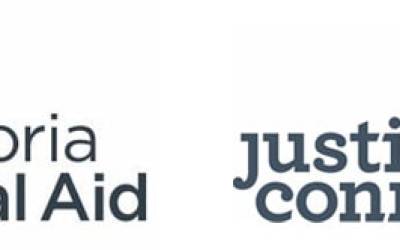Call 1800 641 743 for a free first interview. Ask about our No Win No Fee OR Expenses* fee policy.
Published: 03 November 2016
Author:
Ryan Carlisle Thomas
What Trump reveals about sexual abuse at work
Legal damages for sexual harassment now much tougher
Republican Party presidential nominee Donald Trump has been accused of sexual predatory behaviour by a number of women following the release of the "Access Hollywood" video in which he boasts about sexual assault.
Since the release of the video Trump has denied that he engages in the type of conduct that he so gleefully speaks about. But his denials have seemingly caused a large number of women to come forward who claim to be the victim of Trump’s unsolicited sexual comments and conduct. Many of these women either worked for or with Trump. According to the alleged victims it appears that, for many of them, the personal ramifications of having been subjected to the unwanted sexual advances or comments of a very powerful man have been enormous.
This serves as a stark reminder of the impact sexual assault in the workplace can have on victims. This can include humiliation or embarrassment, the loss of employment and in more serious cases injury including anxiety and depression.
How widespread is sexual abuse?
Trump’s comments also remind us of just how prevalent, unfortunately, sexual harassment is. As at 2012 over one in five people in Australia had been sexually harassed and some 68% of people who have been sexually harassed had been harassed in the workplace (2012 Australian Human Right’s Commission survey). Clearly, then, sexual harassment remains a live issue within Australia’s workplaces. And Trump’s boasting gives us an insight into why this is – these are the comments of a very powerful man who holds a great deal of social, economic and political sway over those around him, including the women who work for and with him.
Sexual abuse not always obvious
Trump’s comments in the video are particularly vulgar. He brags that: "I just start kissing them. When you’re a star, they let you do it. You can do anything". And that isn’t even the worst of what he says.
However sexual harassment in the workplace is often not as obvious as this.
The legal definition of sexual harassment relevant to employment situations is very broad.
A person sexually harasses another if they make an unwelcome sexual advance, or an unwelcome request for sexual favours, to the person harassed; or engages in other unwelcome conduct of a sexual nature in relation to the person harassed; in circumstances in which a reasonable person would have anticipated a possibility of the person harassed feeling offended, humiliated or intimidated (see section 28A of the Sex Discrimination Act 1984).
In non-legal speak the definition of sexual harassment is essentially any non-consensual sexual behaviour or comment that is likely to cause offence, humiliation or intimidation. In this definition sexual harassment can include less obvious behaviours like staring or leering, unnecessary familiarity, or suggestive comments or jokes. Clearly it also includes the type of behaviour Trump seemingly engages in; physical assault.
What can the law do?
Lots.
Most victims of sexual harassment in the workplace do not make a formal complaint. This is likely because of fear of retribution, or because sexual harassment is often trivialised leaving the victim questioning their cause for concern. Seeking the confidential advice of a lawyer can often be the first step to dealing with sexual harassment in the workplace.
Thankfully, the law is starting to catch up with community expectations in relation to how to deal with sexual harassment in the workplace.
In the Full Federal Court decision of Richardson v Oracle Corporation Australia Pty Ltd and Tucker [2014] FCAFC 82 a former employee of the defendant was awarded $130,000 in damages for being sexually harassed by Mr Randol Tucker, a male sales representative.
The interesting thing about this decision is that the plaintiff, Ms Rebecca Richardson, was originally awarded only $18,000. Ms Richardson appealed arguing that this award was not sufficient.
The Full Bench agreed. Justice Kenny, in her reasons, explained that 'having regard to the nature and extent of Ms Richardson’s injuries and prevailing community standards, the low level of damages awarded by the trial judge itself bespeaks of error.'
This decision is evidence that courts are taking a more serious approach to compensating victims of sexual harassment.
Categories Workplace, Sexual Abuse, Harassment
Call 1800 641 743 to be connected to your nearest office, find an office near you on our office locations map, or email us using the form below and we will contact you on the same or next business day.
* Required Field

